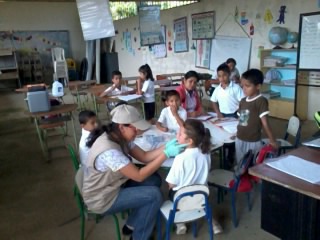Coach Lupe Marquez
Lupe Marquez is a handball enthusiast and overall great dude. He is the founder and head coach of El Paso Youth Handball (EPYH) in El Paso, Texas. Handball is like racquetball and is played obviously without the
racquet and with gloves on both hands. It
can be played on a court of 1-wall, 3-walls or 4-walls. It is widely recognized as one of the best all around sports for strength, conditioning and flexibility. The governing body for the sport is the U.S. HandballAssociation. It is different than the common Olympic sport of team handball.
Coach Marquez took a few minutes to talk to me about the program, community and future.
Wellinspired (WI): What is the history of El Paso Youth Handball (EPYH)?
Coach Marquez (CM): EPYH started in 2005 with as many as 20 boys/girls participating ranging in age from 9 to 17. The goal of EPYH is to introduce the game, share the passion, present opportunities for competition, and to teach good sportsmanship. That is why handball is the perfect game!
WI: How has EPYH done in competitions?
CM: We have participated an numerous tournaments that includes events at the USHA Nationals and Worlds. Some notable results:
11U Girls National Championship - Lauren Guerra 2007
Age group National Finalists - Angel Marquez 4x; Maleyna Moriel
1x
Sportsmanship awards - Angel Marquez 2005; Maleyna Moriel 2009
WI: Have you received any special recognition for your efforts?
CM: I received the USHA Sportsmanship award in the 2006 USHA Hall of Fame Championships for my efforts with the youth program.
WI: What is the future of EPYH?
CM: Future is to help maintain handball in their lives through education and begin with a new group of kids starting as young as six and repeat what EPYH has started with the first wave of kids.
WI: How can those interested in EPYH get more information?
CM: The team is always looking for new members wanting to try the handball - the perfect game!
My email is lguadalupem@aol.com and my phone number is 915-892-1336.




